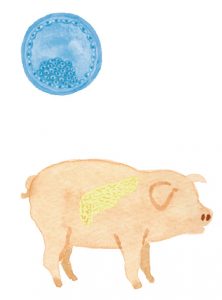Relaxation of regulations for chimeric embryo research in Japan
This past March 1, the Japanese government relaxed its regulation on chimeric embryo research, making it legally easier to create human organs in animals. Since 2010, researchers have been using pluripotent stem cells such as iPS cells to produce human organs in animals, with expectation growing these organs will help clarify disease development, advance drug discovery and even be used for clinical transplantations. Other countries aggressively considering their regulation on this research have been the UK and the US.
Japan passed “guidelines for modified embryos” in 2001 and revised them in 2009. These guidelines were intended to improve organ transplantation methods, but at the same time were limited to basic research, implying that any product of the embryos would not be used in humans. These guidelines restrict the culturing of the embryos to a maximum number of days. However, in 2019, the guidelines were revised to extend the research application of these embryos beyond organ transplantation to include the study of disease and drug discovery, which resulted in permission to create living animals from the embryos. The latest revisions still prohibit the use of organs from these animals in humans.
Prior to the most recent revisions, there was concern that chimeric embryos would lead to births of animals with neural functions resembling those of humans or the breeding of animals that produce human sperm or eggs. Scientific studies have confirmed the possibility of animal-human hybrids is quite low, although not outright impossible. The guidelines therefore are designed to encourage researchers to develop research plans that assuage these concerns, plans that are further reviewed by ethics committees assigned by government bodies.
However, for chimeric embryo research to advance our understanding of diseases, several controversial measures must be considered. For example, the study of Alzheimer’s disease will involve the use of human cells to create brain-like structures and other research will require the creation of human sperm and eggs. The latest revisions do not outright prohibit these creations from ever being used to produce a living animal.

A survey we conducted in 2016 suggests the public remains is unsure about the risks of chimeric embryo research, especially with regards to brain and germ cells (see press release and doi.org/10.1002/sctm.17-0128). For this reason, it is essential that the public be included in the discussion. Furthermore, the revisions do not consider the transplantation of organs into humans, but considering the rate at which scientific research is advancing, the ethics of these treatment also deserve attention.
